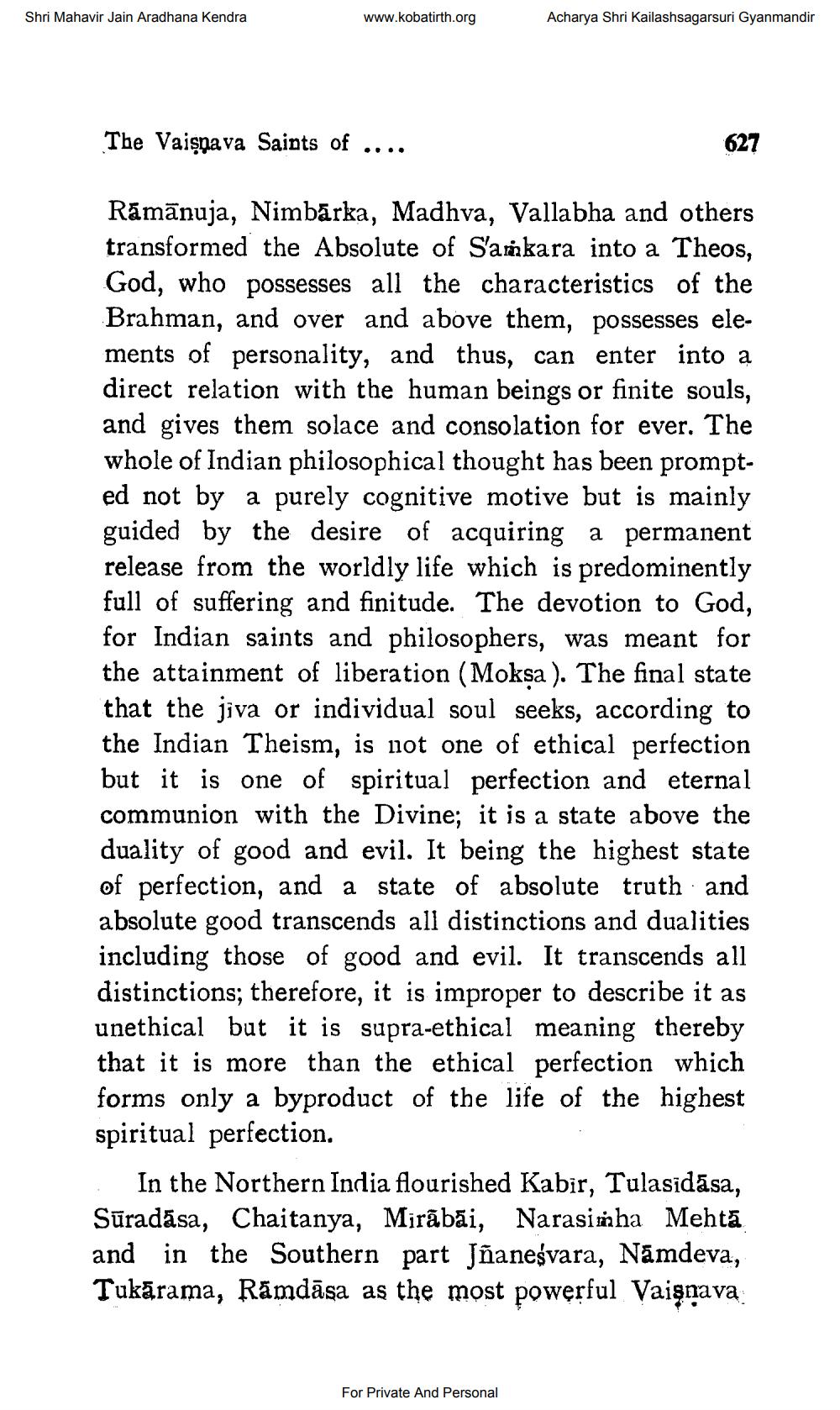________________
Shri Mahavir Jain Aradhana Kendra
www.kobatirth.org
The Vaisnava Saints of ....
Acharya Shri Kailashsagarsuri Gyanmandir
627
Rāmānuja, Nimbārka, Madhva, Vallabha and others transformed the Absolute of Samkara into a Theos, God, who possesses all the characteristics of the Brahman, and over and above them, possesses elements of personality, and thus, can enter into a direct relation with the human beings or finite souls, and gives them solace and consolation for ever. The whole of Indian philosophical thought has been prompted not by a purely cognitive motive but is mainly guided by the desire of acquiring a permanent release from the worldly life which is predominently full of suffering and finitude. The devotion to God, for Indian saints and philosophers, was meant for the attainment of liberation (Mokṣa). The final state that the jiva or individual soul seeks, according to the Indian Theism, is not one of ethical perfection but it is one of spiritual perfection and eternal communion with the Divine; it is a state above the duality of good and evil. It being the highest state of perfection, and a state of absolute truth and absolute good transcends all distinctions and dualities including those of good and evil. It transcends all distinctions; therefore, it is improper to describe it as unethical but it is supra-ethical meaning thereby that it is more than the ethical perfection which forms only a byproduct of the life of the highest spiritual perfection.
For Private And Personal
In the Northern India flourished Kabir, Tulasidāsa, Suradāsa, Chaitanya, Mirabai, Narasimha Mehta and in the Southern part Jñanesvara, Namdeva, Tukārama, Rāmdasa as the most powerful Vaisnava




